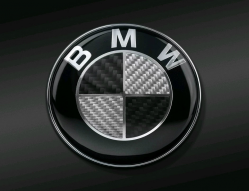
— A BMW emissions lawsuit is allegedly nothing more than trial attorneys trying to make money by filing a lawsuit that liberally cuts and pastes “BMW” for “Volkswagen.”
The lawsuit alleges 2010-2018 BMW 335d and X5 models are equipped with emissions defeat devices, but in a motion to dismiss the complaint, attorneys for BMW say the "facts" mentioned in the lawsuit are nothing more than "irrelevance and bluster."
The original version of the lawsuit was titled Rickman, et al. v. BMW of North America LLC, et al., but the proposed class-action was amended to Chad Maccanelli, et al. v. BMW of North America LLC on April 19, 2018. BMW says the amended version was filed mainly to add additional plaintiffs and to allege additional state claims.
In May 2018, the same attorneys filed a separate BMW emissions lawsuit called Ricky Evans, et al. v. BMW of North America LLC, et al., which added 21 new plaintiffs but was allegedly otherwise identical to the Maccanelli lawsuit. Then the plaintiffs in both the Maccanelli and Evans actions filed the current consolidated lawsuit.
The 43 named plaintiffs allege they purchased or leased 44 new or used BMW 335d or X5 diesel vehicles between 2010 and 2018. According to the lawsuit, the automaker promoted its 335d and X5 models as diesel vehicles having reduced nitrogen oxide emissions and that's why the plaintiffs purchased or leased the vehicles.
Attorneys for BMW argue that although lawyers for the plaintiffs believe the vehicles are illegal, no U.S. regulator has accused BMW of using emissions defeat devices in any U.S. BMW model. The automaker says the entire lawsuit is based on actions made by Volkswagen when VW was caught cheating on emissions tests in 2015.
Lawyers for BMW also claim the lawsuit asserts Robert Bosch and BMW collaborated “to develop and implement a specific and unique set of software algorithms” that made it possible for the BMW vehicles to detect when the vehicles were undergoing emissions testing.
Although the plaintiffs allege BMW's actions were illegal, the automaker says the lawsuit never alleges particular laws or regulations were violated, so the word “illegal” is unjustified.
BMW told the judge every argument made by attorneys for the plaintiffs comes from their "litigation-friendly 'testing' of a single, six-year-old vehicle with unknown maintenance history and in unknown condition."
Additionally, BMW argues the plaintiffs have now filed four amended lawsuits describing their paid experts but they still have not named those experts. BMW told the judge it believes attorneys for the plaintiffs have failed to disclose one of the two "experts" would "benefit materially and directly from positive outcomes in these cases."
The plaintiffs admit only one used 2012 BMW X5 was allegedly showed emissions irregularities, something BMW says is a serious problem.
First, the people who performed testing on the used vehicle were paid by attorneys suing the automaker.
Second, alleged emissions problems with a used six-year-old vehicle says "absolutely nothing about the emissions levels of the BMW models tested—and properly certified—when new by the EPA and CARB." BMW says the lawsuit references studies conducted on European BMWs but fails to point out differences between European and U.S. standards.
"Finally, the Complaint ignores the fact that ICCT, one of the groups that did European testing, also tested one of the U.S. models at issue, and held up the BMW X5 as the standard for meeting the emission rules."
BMW further says testing different cars under different standards has nothing to do with showing the existence of defeat devices in the plaintiff's cars.
The automaker also argues the lawsuit is almost slanderous to the U.S. government when the plaintiffs allegedly insinuate that BMW reached a “political deal” with the EPA under which the "EPA agreed to bless BMW cars even though they were in fact not compliant when sold."
"This assertion is unsupported and false, and its desperation highlights that Plaintiffs have no credible, factual basis to dispute the EPA’s and the ICCT’s conclusions that the BMW models at issue both had no defeat devices and complied with EPA regulations when sold. Throwing mud is not a substitute for alleging facts."
BMW's lawyers told the judge that attorneys for the plaintiffs designed and paid for a particular set of emissions tests, but not the same tests performed by the EPA. Even at that, the lawsuit only mentions one alleged negative test result on one used 2012 BMW X5 xDrive35d even though the plaintiffs have a total of 44 cars.
"One can assume then only that the other forty-four vehicles owned by Plaintiffs (and the myriad others to which their counsel had access) either were never tested (unlikely) or perhaps just couldn’t be made to show the desired results. To be clear, counsel did not replicate the EPA tests required for certification; they made up their own testing protocol (or perhaps several), and disclosed only the results they like."
BMW told the judge the lawsuit should be dismissed because the claims are rehashed from fraud conducted by Volkswagen, and it's nothing more than a "transparent guilt-by-association narrative" masked as "facts" against BMW.
The BMW emissions lawsuit was filed in the U.S. District Court District of New Jersey - Joshua Hu, et al., v. BMW of North America LLC, et al.
The plaintiffs are represented by Carella, Byrne, Cecchi, Olstein, Brody, Agnello, P.C., Hagens Berman, Seeger Weiss, and The Miller Law Firm PC.




